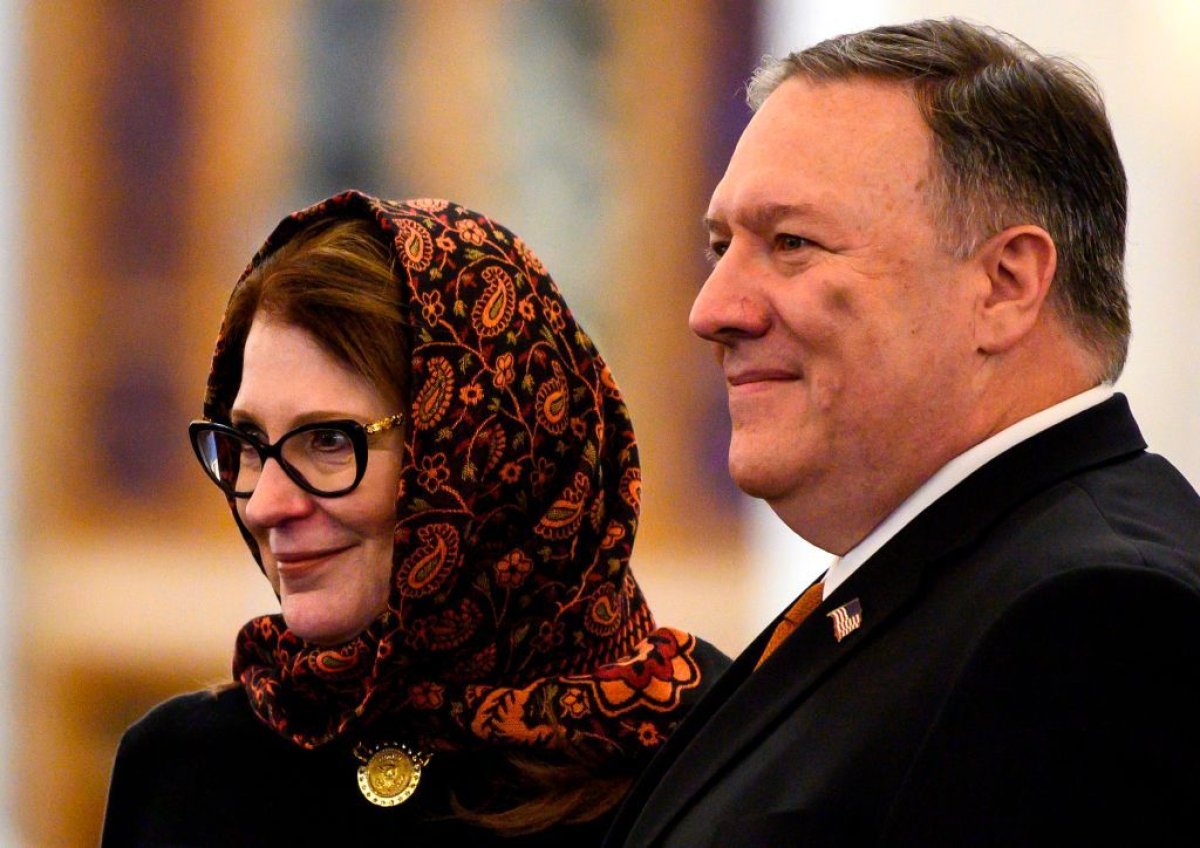Iran's Foreign Minister Javad Zarif issued a stinging rebuttal to Secretary of State Mike Pompeo's Thursday speech on the Middle East, saying that "chaos, repression and resentment follow" international actions taken by the United States.
Sharing a Twitter response to Pompeo's remarks, which were made during a visit to Egypt, Zarif suggested the U.S. has never gotten over its loss of Iran as an ally back in the late 1970s. He also criticized Washington's human rights record.
"Whenever/wherever US interferes, chaos, repression & resentment follow [sic]," Zarif wrote. "The day Iran mimics US clients & @SecPompeo's 'human rights models'—be it the Shah or current butchers—to become a 'normal' country is the day hell freezes over [sic]. Best for the US to just get over loss of Iran."
Whenever/wherever US interferes, chaos, repression & resentment follow. The day Iran mimics US clients & @SecPompeo's "human rights models”—be it the Shah or current butchers—to become a “normal" country is the day hell freezes over. Best for the US to just get over loss of Iran.
— Javad Zarif (@JZarif) January 10, 2019
In his speech, the secretary attacked President Donald Trump's predecessor Barack Obama, calling his Middle East policy and position toward Iran "misguided," characterizing it as "wishful" thinking and arguing it diminished his nation's clout in the region. Pompeo argued that Obama's policies had conversely worked to embolden Tehran's influence.
"President Trump has reversed our willful blindness to the danger of the [Iranian] regime and withdrew from the failed nuclear deal, with its false promises," he said, according to the Associated Press.
Pompeo also said that the U.S. had been a "force for good" in the Middle East and that "when America retreats, chaos follows." Meanwhile, the Trump administration has stood firmly behind Saudi Arabia's Crown Prince Mohammed bin Salman, whom the CIA and other intelligence agencies concluded was responsible for the grizzly killing of journalist Jamal Khashoggi late last year.
Jamal Abdi, president of the National Iranian American Council, criticized the secretary's comments as well, saying Pompeo "failed to outline a coherent strategic logic for the Trump administration's Middle East policy."
"If Secretary Pompeo wants regional stability, human rights, and an end to U.S. military adventures and endless wars, he would press his boss to return to the Iran deal, pursue and facilitate good-faith diplomacy among all stakeholders, and honor our international agreements," Abdi said in a statement emailed to Newsweek.
Trump withdrew the U.S. from the Iran nuclear deal, known formally as the Joint Comprehensive Plan of Action (JCPOA), in May 2018. The president then moved to re-implement sanctions against the Islamic Republic, despite strong opposition from the international treaty's other signatories: the European Union, France, Germany, the United Kingdom, Russia and China. Under the JCPOA, Iran agreed to curb its nuclear ambitions in exchange for sanctions relief and international investment.

The United Nations's nuclear watchdog has consistently found that Iran has remained in full compliance with the deal, but the Trump administration argues that the agreement allowed Tehran to expand its regional influence and fund militant groups in several countries, including Syria, Iraq, Yemen and Lebanon. These actions are viewed by many in Washington as a threat to close U.S. allies Saudi Arabia and Israel. Despite the White House's position, the other JCPOA signatories have vowed to maintain the agreement, with the European Union setting up a "special purpose" financial institution to continue doing business with the Persian Gulf nation.
Although Zarif took aim at the human rights record of the U.S., Abdi pointed out that Iran also "engages in the unconscionable repression of its people and violates its international human rights commitments." But he argued, "Legitimate criticism of the Iranian government's abuses and support for the Iranian people are undermined by [the Trump] administration's hypocrisy."
Abdi said that Washington's failure to stick to international commitments, as well as its support for "autocratic" regimes such as in Saudi Arabia, harm U.S. credibility in the region. "A prudent alternative U.S. policy to the region must be predicated on using diplomacy as the preferred method of advancing U.S. interests, acting consistently on human rights, and ceasing our blank-check support for regional autocrats," he said.
Uncommon Knowledge
Newsweek is committed to challenging conventional wisdom and finding connections in the search for common ground.
Newsweek is committed to challenging conventional wisdom and finding connections in the search for common ground.
About the writer
Jason Lemon is a Weekend Editor at Newsweek based in Brooklyn, New York. Prior to taking on the editor role, Jason's reporting focused on ... Read more
To read how Newsweek uses AI as a newsroom tool, Click here.








